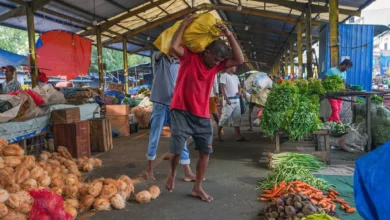
More than 1.2 billion people around the world are living below the poverty line with the equivalent of US$1 per day. Seventy percent of these people are women, making the "feminization of poverty” a real phenomenon.
Deprivation and social injustice expose poor women to higher risks than men, which reflect negatively on societies and economies as a whole.
Millions of women live in extreme poverty because of discrimination. They are deprived of their basic needs for health, education and employment.
It is usually the women who are responsible for feeding their families. Having few options, they often work in people's homes for very little, to the detriment of their own health, as well as a proper education for their children.
The Beijing Declaration, which was adopted by 189 countries in 1995, called for urgent attention to women's vulnerability to poverty. All countries pledged to eliminate poverty among women through economic growth, social development, social justice, economic policies that provide more opportunities for women and laws that support their economic rights.
Progress has been made over the past 20 years, but there is still a lot to do in order to completely eliminate the phenomenon.
According to recent statistics by the United Nations Commission on the Status of Women, more than 1.2 billion women around the world do not have a financial account at any financial institution, including banks, cooperatives, credit unions, post offices and micro-financing institutions. In Africa, eight out of 10 working women risk losing their jobs due to economic crises.
Women and girls living in poor areas are subject to discrimination and violence. Studies show they are forced into early marriages over two times more than those who live in rich areas. They are also more vulnerable to sexual harassment and human trafficking.
On an educational basis, rural children drop out of primary education twice as much as urban children do, with only 23 percent completing their schooling in sub-Saharan Africa.
With regards to health, every minute one woman dies during childbirth as a result of poverty, lack of medical care and lack of proper nutrition.
Edited translation from Al-Masry Al-Youm




